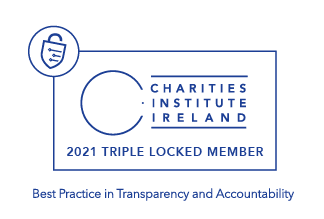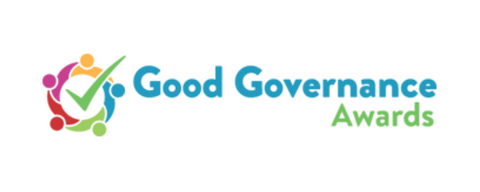SEI Whistleblowing Policy
- All workers including staff, volunteers, Board Members and Social Entrepreneurs
- March 2020
- General Distribution
- Haley Curran, Anne Murphy
- Operations team, Audit Committee
- SEI Directors: Feb 2020
- SEI Audit Committee: March 2020
- SEI Chair of the Board: March 2020
- March 2022
Policy Statement
SEI is committed to maintaining an open culture with the highest standards of honesty and accountability where all staff can report any concerns in confidence.
The aims of this policy are to:
- encourage you to feel confident and safe in raising concerns and disclosing information, as soon as possible, in the knowledge that your concerns will be taken seriously and investigated as appropriate.
- provide guidance as to how to raise concerns in confidence and information on how you will receive feedback on any action taken.
- ensure that you receive a response where possible to your concerns; and
- assure you that you will be protected from penalisation or any threat of less favourable treatment, discrimination, disadvantage or retaliation even if your concerns turn out to be mistaken.
Scope
This policy applies to all workers including all levels of staff, volunteers, Board Members, consultants, contractors and Social Entrepreneurs.
It is important to note that should you have a concern in relation to your own employment or personal circumstances in the workplace it should be dealt with by way of our Grievance Procedure (Section 3.1 in the SEI Staff Handbook). Likewise, concerns arising in regard to workplace relationships should generally be dealt with through our Equality policy (Section 2.1 in the SEI Employee Handbook).
It is also important to note that this policy does not replace any legal reporting or disclosure requirements. Where statutory reporting requirements and procedures arise, these must be complied with.
If you are uncertain whether something is within the scope of this policy, you should seek advice from the Director of Operations or the CEO.
Policy
Whistleblowing (referred to in this policy as making a Protected Disclosure) is the disclosure of information which, in the reasonable belief of the worker making the disclosure (the Whistleblower), tends to show a relevant wrongdoing which has come to their attention during the course of their employment.
The following examples demonstrate what is meant by a relevant wrongdoing:
- criminal offences, e.g. theft, drug taking.
- bribery and corruption
- financial fraud or mismanagement.
- failure to comply with legal obligations.
- the unlawful or unauthorised use of public funds or resources.
- health and safety risks including risks to the public, SEI staff, volunteers, consultants, or the staff of Partner organisations.
- damage to the environment; and
- actions which are intended to conceal, or destroy evidence, of any of the above.
If you have any concerns related to relevant wrongdoing you should report those concerns in accordance with this policy.
Protection and Support for Whistleblowers
It is understandable that Whistleblowers are sometimes worried about possible repercussions. SEI aims to encourage openness and will support staff who raise genuine concerns under this policy, even if they turn out to be mistaken.
If you make a Protected Disclosure under this policy, you will not be subject to any penalisation by SEI and may also under applicable legislation be entitled to legal immunity from any civil or criminal liability arising from making the Protected Disclosure.
Penalisation includes suspension, lay-off or dismissal, demotion or loss of opportunity for promotion, transfer of duties, reduction in wages or change in location or working hours, disciplinary action, threats of reprisal or other unfavourable treatment connected with raising a concern or making a disclosure under this policy. If you believe that you have suffered any such treatment, you should inform your line manager or the Director of Operations. In the unlikely event that the matter is not remedied you should raise it formally using SEI’s Grievance Procedure.
SEI also takes a zero-tolerance approach to harassment in the workplace (SEI Harassment/Bullying and Sexual Harassment Policy, Section 2.2 in the Employee Handbook). Workers must not threaten, penalise, harass or retaliate against a Whistleblower in any way. Anyone found to be involved in such conduct will be subject to disciplinary action.
Confidentiality
SEI is committed to protecting the identities of Whistleblowers and will, where possible, keep their identity confidential. The focus will be on the wrongdoing rather than the person making the disclosure.
However, there are circumstances where confidentiality cannot be guaranteed or it may be necessary to disclose the identity of the Whistleblower, such circumstances include where:
- the person to whom the Protected Disclosure was made or referred reasonably believes that the Whistleblower does not object to the disclosure of their identity; or
- the person to whom the Protected Disclosure was made or referred reasonably believes that disclosing any such information is necessary for:
- the effective investigation of the relevant wrongdoing concerned,
- the prevention of serious risk to the security of the State, public health, public safety or the environment, or
- the prevention of crime or prosecution of a criminal offence; or
- the disclosure is otherwise necessary in the public interest or is required by law.
If it is necessary for anyone investigating the Protected Disclosure to know the Whistleblower’s identity, we will discuss this with the Whistleblower first and where wider disclosure of their identity is necessary, SEI will make every effort to inform the Whistleblower that their identity may be disclosed.
Procedure for making a Protected Disclosure
- You should raise your concern with your line manager or, if this is not appropriate, you can approach their superior. You can also raise a concern with a member of the senior management team or the CEO. The SEI Chair of the Board should be notified of all concerns that are raised by staff and should be updated on steps taken to address this concern.
- If your concern cannot be raised with the CEO or other senior managers, you should raise the concern with the Chair of SEI’s Board.
- Concerns may be raised verbally or in writing. If the person receiving the disclosure is unsure of how this concern should be handled, they should speak, in confidence, to the Director of Operations or the CEO. If you raise a concern verbally, we will keep a written record of our conversation and provide you with a copy after our meeting. Written concerns should contain the background and history of the concern giving relevant details such as dates, sequence of events and description of circumstances.
- Two people from SEI’s senior management team, and/or board will be assigned to oversee and manage the process. These two individuals, referred to as the Investigation team, should not be connected to the disclosure in any way.
- A meeting will be arranged between you and the Investigation team to discuss the matter on a confidential basis. You can choose whether or not you want to be accompanied by a colleague.
- After this meeting, an initial assessment to examine next steps will be carried out.
- If, after the initial assessment, there are grounds for concern that cannot be dealt with at this point, an investigation will be conducted, with oversight from the Investigation team. Disclosures may, in the light of the seriousness of the matters raised, be referred immediately to the appropriate authorities.
- Depending on the outcome of the assessment and or investigation, suitable actions will be taken to resolve the concern.
- All disclosures and actions taken will be shared with the Chair of SEI’s Board.
We undertake to communicate with you as follows:
- acknowledge receipt of your disclosure and arrange to meet with you as outlined above.
- inform you of how we propose to investigate the matter and keep you informed of actions, including the outcome of any investigation. However, sometimes the need for confidentiality and legal considerations may prevent us from giving you specific details of an investigation.
- inform you of the likely time scales in regard to each of the steps being taken; and
- maximise confidentiality through offsite meetings. You can choose whether or not to be accompanied by a colleague or third-party representative.
You will not be expected to prove the truth of a suspected relevant wrongdoing when making an internal disclosure under the SEI Whistleblowing Policy. However, if an unfounded allegation is found to have been made with malicious intent, then disciplinary action will be taken.
While we cannot guarantee the outcome a Whistleblower is seeking, we will do our utmost to deal with your concern(s) fairly and in an appropriate way. By using this policy, you will be helping us to achieve this.
If you are not happy with the way in which your concern has been handled, you can raise it with the CEO. Alternatively, you may contact the Chair of SEI’s Board.
Raising a Concern Anonymously
A Protected Disclosure can be made anonymously. However, on a practical level, it is often more difficult or impossible to investigate the issue of concern if we cannot obtain further information from the Whistleblower. We therefore do not encourage workers to make anonymous disclosures.
External Disclosures
The aim of this policy is to provide an internal mechanism for reporting, investigating and remedying relevant wrongdoings in the workplace. However, we acknowledge that avenues for making disclosures externally are available to workers in certain circumstances, as set out in the Protected Disclosures Act 2014.
We encourage you to seek advice before reporting to anyone externally.
Position of the person who is the subject of a Protected Disclosure
A person who is the subject of a Protected Disclosure under the SEI Whistleblowing Policy is entitled to, and will, be treated fairly and in accordance with due process. In this regard:
- the identity of any person who is the subject of a Protected Disclosure will remain confidential where this is possible and reasonable, subject to the requirements of any investigation, this policy and applicable law.
- line managers who receive a Protected Disclosure in accordance with this policy will act fairly towards any person who is the subject of that disclosure.
- the person who is the subject of the Protected Disclosure will be formally advised of the outcome, where appropriate; and
- where the allegations are not substantiated, a person who is the subject of the disclosure will be entitled to continue in his/her role as if no allegation was made.
Training and Awareness
All staff must be appropriately trained to deal with the requirements of this policy. Refresher training will be provided to staff as required.
Communication, Monitoring and Review
This policy will be communicated as appropriate and will be subject to regular monitoring and review in consultation with our workforce and their representatives.


